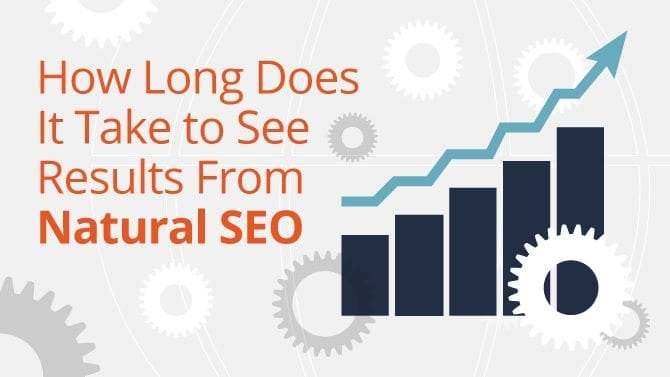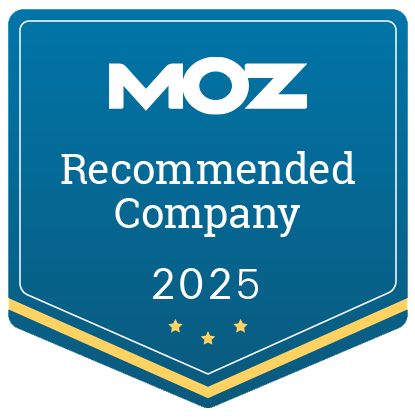Understanding How SEO Works
So you have briefed yourself on the benefits of SEO, and you understand that it’s necessary if you want long-term success in the search results. But, unlike Pay-Per-Click Campaigns (like AdWords), SEO does take some time. Because a strong SEO strategy relies on valuable content and quality backlinks, you obviously can’t take your website from page 50 to page 1 overnight. Okay, fine. So how long do you have to wait?
That depends.
Surely, that’s not what you wanted to hear, but this is not a one-size-fits-all answer. There are a lot of variables involved, and you can’t even control a lot of them. To put it simply, Search Engine Optimization (SEO) is like the tortoise in the race, and we all know how that story ends. It may seem like a slow start, but in the end, you come out on top.
But the good news is you will start to see an improvement in just a few weeks.
Don’t Expect Immediate Results
Just like when you are losing weight, you don’t expect the end result immediately, but you want to know your efforts are doing something. These short-term results will motivate you to keep working, knowing your goal will eventually be achieved. With SEO, you can expect this all-important progress after a week or two. Once your initial fixes are made (cleaning up your sitemap, putting in some internal linking, indexing things properly, adding in some meta tags, etc.), you just have to wait for Google to crawl and index your site. You may not be on the first page at this point, but you will definitely be able to see that you are headed in the right direction.
How Long Does it Take to Reach the Top Spots in Google SERPs?
It can take anywhere from three months up to a year or more. It is not black and white, and it all depends on three things:
- Starting Point – Clearly, the current condition of your website plays a big role in how long it will take you to get to the top. If you already have a well-maintained blog with loyal followers and a decent number of backlinks, you will notice results much quicker than someone starting from scratch. And if you have been penalized for some black hat SEO techniques, your mountain is even steeper.
- Industry & Competition– The type of work you are in determines how specific your keywords need to be. If you are a dentist in a small town, you will have much more targeted keywords (i.e., less competition) versus a nationwide alarm company. Of course, anyone can do geo-targeting, so the more specific you can make your keywords, the faster you will be able to see results. You want to avoid competing with the money-falling-from-the-sky companies if at all possible.
- Amount of Work – Finally, the amount of effort you put into your SEO strategy makes a big difference. Obviously. You can’t expect to post one blog a month and move up as quickly as someone posting three times per week.
Other Factors Influencing SEO Results
Of course, SEO is not as black and white as having one answer. Within this marathon, there are many other factors that can lead to the timing of seeing success. Let’s explore the other highly influential factors:
- Website Age and Authority: Older, more established sites with a strong backlink profile often see results faster than brand-new sites.
- Competition in Industry: Highly competitive industries (like finance or real estate) may take longer to rank because many players are vying for top spots.
- Keyword Difficulty: Targeting highly competitive keywords will usually take longer compared to focusing on niche or long-tail keywords.
- Content Quality and Relevance: High-quality, relevant, and regularly updated content can accelerate SEO results, as search engines prioritize valuable content.
- Technical SEO Health: A site free from technical issues (like broken links, slow loading speeds, and mobile-friendliness) is likely to perform better in search rankings.
- Backlink Profile: Quality and quantity of backlinks can affect SEO speed. Earning links from reputable sites boosts credibility, while poor-quality links can slow progress.
- Consistency and Frequency of Updates: Consistently updating content, optimizing pages, and building links contribute to more sustainable, faster SEO results.
- On-Page Optimization: Optimizing elements like meta tags, headers, and image alt text influences how quickly search engines understand and rank your content.
- User Experience (UX): Websites with high bounce rates, poor UX, or low engagement may take longer to rank well, as search engines favor user-friendly pages.
- Geographic Location and Search Intent: Local SEO can sometimes yield faster results than broad, national SEO, depending on the location and specific search intent.
Start Seeing SEO Results
Finally achieving meaningful results with SEO takes time, but the rewards—like sustained traffic, stronger brand credibility, and higher search rankings—are well worth the investment. With the right digital strategy and patience, your business can see lasting impacts from an effective SEO approach. Contact us at Zero Gravity Marketing today to start your journey towards improved rankings and long-term digital success.
About the Author











